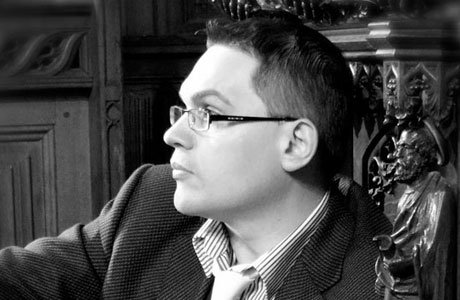
In demand: Composer Paul Mealor
Within the space of just one year Paul Mealor has become one of the hottest properties in classical music.
As the composer of ‘Ubi Caritas’, the work that captivated a worldwide audience at the wedding of the Duke and Duchess of Cambridge, he attained compositional superstar status.
All this and he also penned the hit single for the Military Wives of, ‘Wherever You Are’.
He is in huge demand as a composer of immense flexibility and variety, although what few people may appreciate is that Paul’s creative roots started to grow as a euphonium player in North Wales.
Chris Thomas found a rare break in his schedule to chat about those formative years, his recent successes and his music for the brass band medium.
Chris Thomas: You were born in St. Asaph, a place of considerable musical significance in Wales.
What were your earliest musical experiences?
Paul Mealor: I grew up playing in brass bands and singing in choirs, but it had all started when I was 9 and I fell into a lake in Anglesey.
I couldn’t swim and realised I was drowning.
In that moment I had an epiphany. A great warmth came over me and I immediately knew that there was something beyond life.
Fortunately, a passerby came to the rescue, but from that moment on I realised that there was some kind of calling for me.
I started to sing in church choirs, but my uncle said that if I wanted to learn music I should play in a brass band – so I joined Deeside Silver on euphonium.
I had brilliant training from a chap called Derek Williams and his son Graham. They gave up a huge amount of their time whilst my dad decided to take up the Eb bass and my mum the flugel horn!
Chris Thomas: Aged 10, you plucked up the courage to approach William Mathias and ask for lessons.
Had you decided that you were going to be a composer at that early age?
Paul Mealor: One of the great things about St. Asaph was the North Wales Music Festival which attracted world renowned figures such as Lady Walton and Pavarotti.
William Mathias also came each year so I boldly went up to him and said that I was a composer. I asked him if he would give me lessons and amazingly he said yes!
I went to his beautiful home in Menai Bridge where his wife Yvonne, who was like everyone’s mum, would be giving singing lessons.
As I used to leave a certain Aled Jones would sometimes be coming in the other direction!
In fact there were often other amazing musicians there such as the pianist John Ogden and organist John Scott.
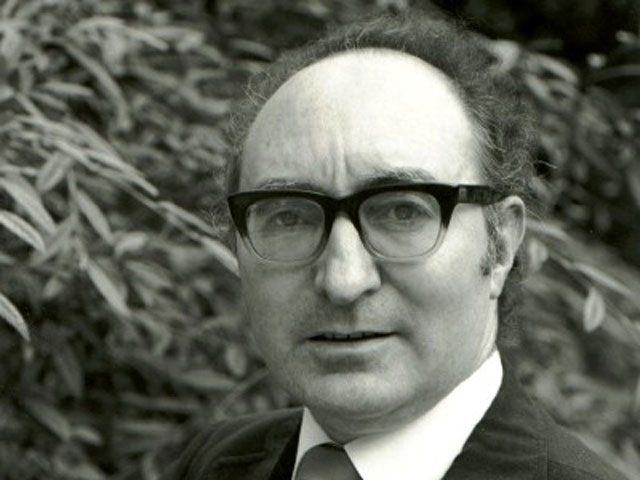
Great early influence: Composer William Mathias
Chris Thomas: What do you remember of those lessons?
Paul Mealor: Well, I knew nothing at that age of course, but I had just written a Symphony!
I actually wrote it in Crayola pen, and when I showed it to William he said that I really needed to learn harmony.
We then moved onto counterpoint and orchestration so it was quite tough stuff, but I got a terrific grounding which he was really quite serious about in a jolly kind of way!
I was then lucky to link with John Pickard for 2 years, who was a former Mathias pupil and teaching at Bangor University.
He had just written his orchestral work ‘The Flight of Icarus’, and he taught me privately.
He had not long finished ‘Wildfire’, and would set me exercises along with studying Messiaen, Stockhausen, Robert Simpson and others.
We also studied how he put his own music together, which was a huge help.
Chris Thomas: And you were playing in brass bands at this time?
Paul Mealor: Yes indeed. I was at Northop where Nigel Weeks was the MD at that time.
I also had a brief (very brief!) spell with Tredegar when I helped them out for a contest.
Chris Thomas: What music for brass band excited you back in those early days?
Paul Mealor: I loved the music of Eric Ball, which in a way came from a love of Elgar John Pickard had instilled in me.
Two pieces that come to mind are ‘Resurgam’ and ‘Journey into Freedom’.
Even though they are test pieces they don’t come across as such. I really connected with the spiritual elements of Ball’s music.
I also met and had a lesson with John Golland, having fallen in love with his ‘Sounds’. It’s a work that has never really had the credit it deserves, as was the case with John himself.
Chris Thomas: Do you feel that your time in banding helped you to develop as a composer and musician?
Paul Mealor: Absolutely.
I often say that unless you have felt the music from the inside it’s impossible to know how the second cornet player will feel when you give them a certain melody line, or when the percussion is going to be just too much.
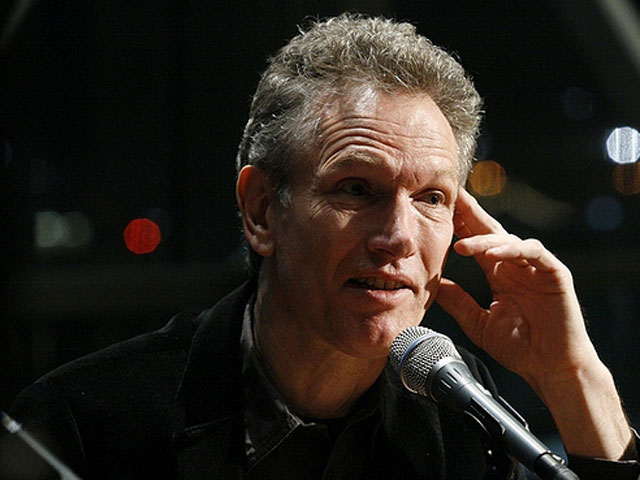
Fascinating composer: Hans Abrahamsen
Chris Thomas: You have studied with many leading contemporary musicians including Magnus Lindberg, Hans Abrahamsen and Per Norgard.
What have you gained from them?
Paul Mealor: I studied at York University with Nicola LeFanu. As the daughter of the composer Elizabeth Maconchy, she represented a direct line back to Vaughan Williams and became a great influence, introducing me to extrovert and experimental music, which was very enriching.
Even though I don’t like that music myself, it’s good to know what’s happening in the world.
With Magnus Lindberg it was about sensuality of sound and structure on a large scale.
Even though I didn’t want to write that kind of music given I’m really a miniaturist, I did want to know how it worked. I learned a hell of a lot from Magnus, including how to drink vodka!
He’s also a master orchestrator - really the modern Ravel, and as Vaughan Williams went to study orchestration with Ravel, I opted for Magnus!
A huge influence was Hans Abrahamsen with whom I studied intensely for about a year. What fascinated me about him was that he wanted to strip away everything that was superfluous in his music, finding a new simplicity.
His piece ‘Winternacht’, is just beautiful, and it was whilst studying with Hans that I wrote my first orchestral piece.
Per was another great inspiration, but in a different way.
He’s an enormously intelligent man and conversations could spin off from esoteric philosophy to virtually any topic you could think of. He has a view on just about everything!
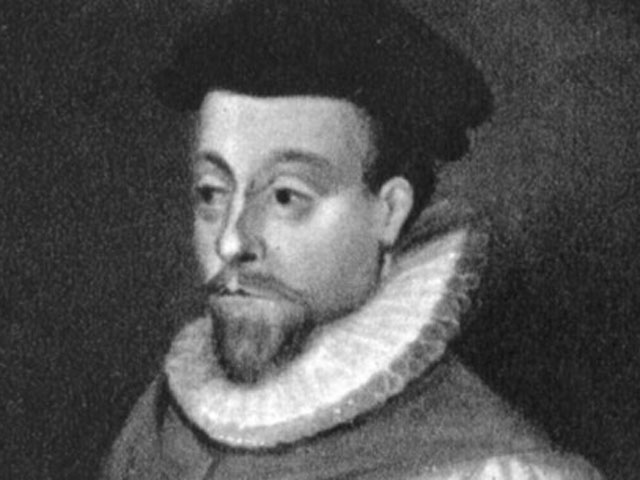
All time favourite: Orlando Gibbons
Chris Thomas: Tudor music has been a major influence. How do you feel the music of the period has been absorbed into your own work?
Paul Mealor: It was really my faith that led me to Tudor music as one of the first pieces I learnt to sing was, ‘See, See the Word is Incarnate’ by Orlando Gibbons.
It’s a magical, otherworldly work and also a very hard piece to sing, but Gibbons has remained my favourite composer ever since, along with Tallis, Purcell and Thomas Tomkins.
In many ways it was the texts and their timelessness that hit me.
They have been set by composers over and over again during the last 500 years, so I really wanted to see if I could add something new too, and that was how I started writing choral music.
Chris Thomas: Your piano trio ‘Borderlands’ occupies quite different stylistic territory to some of your more recent work.
Do you see this as a natural progression or has your creative life fallen into stylistic phases?
Paul Mealor: It depends very much on what I’m working on.
Writing liturgically, you are aware of who is performing the music. It’s one of the skills when writing for choir to produce music that sounds complex but is easy to sing.
With three musicians of the quality I enjoyed with ‘Borderlands’ you can push the music in a different way. It really came out of my studies, in a direction that I wanted to go and was one of a number of quite aggressive pieces; a kind of young man’s music I guess.
It actually proved to be a turning point as I’d always written gentle, meditative choral music and more aggressive orchestral music. In ‘Borderlands’ I managed to put the two together.
Chris Thomas: Much of your music communicates on a direct emotional level, much like John Tavener and Henryk Gorecki.
Is this crucial to your creative instincts?
Paul Mealor: If music is about faith, as it is for me, then it has to come directly from your heart.
You can’t do that as easily with darkly hued canvasses; you have to allow light into the music. In saying that my opera, ‘74 Degrees North’, was very dark, with atonal, aquatic harmonies because the music needed it.
Because much of my music stems from texts, I respond very directly to words as in ‘Borderlands’, where it’s gritty and very different to something like ‘Ave Maria’.
It’s a strange thing that we are so hung up on style in this country though. In the United States no one ever mentions it!
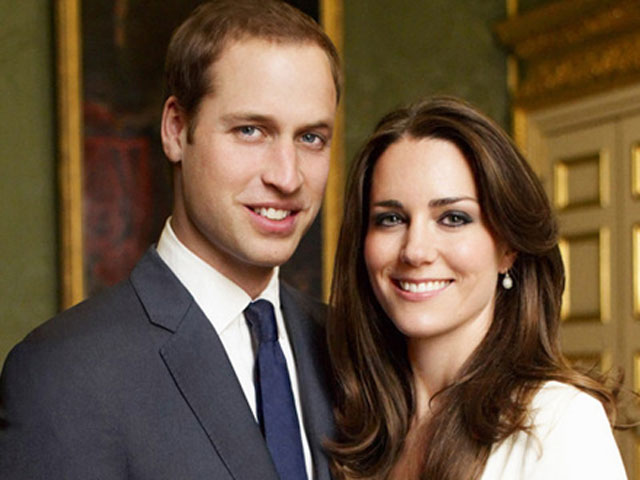
The happy couple
Chris Thomas: ‘Ubi Caritas’, that you wrote for the wedding of Prince William and Kate Middleton must have changed your life?
How did the commission come about?
Paul Mealor: I’d written a large cycle called ‘Now Sleeps the Crimson Petal’ which is essentially four movements exploring feelings towards flowers and how they are represented in love.
It was premiered at St. Andrews and the couple and Prince of Wales had all heard it and wanted to incorporate the first movement into the service.
The wedding hadn’t actually been announced when I was contacted so I initially thought it might be a wind up!
William and Katherine were very meticulous about everything, and she wanted a piece that would form a moment of stillness in complete contrast to the other music that was being played.
I didn’t know what that was at the time, but whether it had been my piece or not, she was so right to have an ‘a cappella’ work amongst the splendour of the Parry etc.
I was then contacted and asked how I would feel about finding a different text as the original was really quite an erotic poem, so I had the idea of setting the sixth century text of ‘Ubi Caritas’.
I felt it was very appropriate in that it speaks of Jesus’ sense of service just when the couple were about to enter a lifetime of service to the nation.
Fortunately, I got a note from William and Katherine saying they thought it was better than the original!
The best part for me though was hearing it in a completely empty Westminster Abbey.
I was sitting with John Rutter and to hear it ring out, so beautifully sung by the choir was wonderful. I was quite overcome by it all.
The music wasn’t actually announced until the day before and I‘d had to keep quiet about it for what felt like an eternity.
Then the huge wave of interest hit, with people asking who the hell the composer was!
I ended up doing radio and TV interviews for the whole day and received 70,000 e-mails, which crashed the computer system at Aberdeen University where I teach!
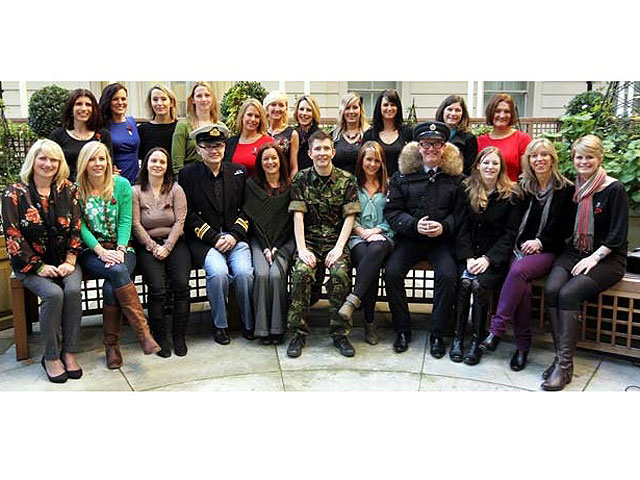
Chris Thomas: Not many composers can claim to have had a Christmas number one hit, but you enjoyed such a success in 2011.
Was that a rather surreal experience?
Paul Mealor: I’d met Gareth Malone some time before and he’d said that we should do something together, although I thought nothing would really come of it.
He then phoned me after the wedding saying that he was working on a project with the Military Wives Choir (above) and couldn’t find a song to give them their voice.
I agreed to write the song although at that point we had no idea that it was going to be such a hit: We simply thought it would be great for the women and for their wonderful cause.
We had to find a text and decided that if it was to be their voice it should also be their words.
Hence, a huge pile of letters - although it was the very first letter I looked at that gave me the title of ‘Wherever You Are’.
Those words summed it up. It really had to be very direct.
It’s essentially very simple; just a single line with a chorus that enables them to sing their hearts out – but you can’t ignore those words.
Gareth phoned me up after the first rehearsal and said they couldn’t finish it because everyone was crying.
The words are just so emotional.
Chris Thomas: 2011 must have been quite a year for you then?
Paul Mealor: It was - and when things like that happen other things tend to come out of it.
The success of the album was incredible and this was sacred music! Those words will always mean something to people though.
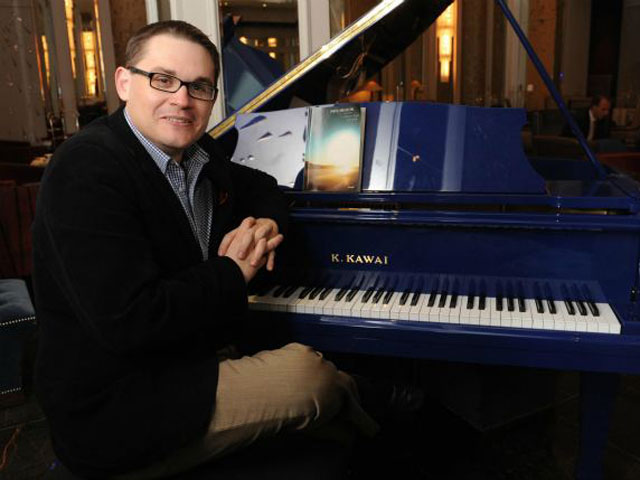
Rhapsody in Blue?
Chris Thomas: You wrote ‘Rhapsody on a Theme of Purcell’, for Brighouse & Rastrick. Tell us a little about the piece?
Paul Mealor: Craig Roberts was conducting Northop at the time and contacted me to see if I would write a piece for them to play at the Parc & Dare Festival.
He wanted a big work, so I went back to my roots; if it wasn’t Gibbons it had to be Purcell, so I set the ‘Rondeau’ from ‘Abdelazar’ that Britten had used in the ‘Young Person’s Guide to the Orchestra’.
It’s a 12 minute rhapsody in the truest sense of the word, and begins with a big fanfare out of which the tune almost appears by accident.
There’s an extensive slow section with technical solos for soprano and trombone, and a big euphonium cadenza, which really brought the curtain down on my own euphonium career!
It finishes with a toccata where the tune comes blazing in at the end.
It had a rapturous first performance with a standing ovation. I then intended to revise it - although I never got round to it.
That said I had another call from Craig recently who said that we should get it published, so there are moves to carry out the revisions and get it performed again.
Chris Thomas: What about ‘Pendragon’?
Paul Mealor: After the ‘Rhapsody’ I guess I got the bug!
I’d always been fascinated by the Pendragon myth. It’s an enormous piece, about 16 minutes in one continuous movement and incredibly difficult.
I showed it to Bob Childs and even he said it would need some changes!
I’ve never quite got round to them but there are moves for a first performance which is really exciting.
I intend to carry out some minor revisions, but I think it’s a proper band piece that people will warm to.
Chris Thomas: You also wrote a solo baritone piece for Carole Crompton?
Paul Mealor: Yes. I was 16, and although it was the first piece I wrote for brass band, I think it contains all the hallmarks of everything I was going to do later on.
Carole gave a really wonderful performance of it.
Chris Thomas: You clearly retain affection for brass bands. Do you still find time to keep an eye on what is going on?
Paul Mealor: Yes - on both counts.
Given that I now travel so much around the world my dad keeps me in touch with who is winning what, particularly in Welsh banding.
Chris Thomas: With so much emphasis placed on contesting, how do you feel about the competitive side of banding?
Paul Mealor: I really used to enjoy it when I played and I would relish the opportunity to write a test piece: It’s the one thing I haven’t done - yet.
My two big band pieces are really quite old now and my music has changed a lot since then.
I have an idea based on Jesus’ last seven words on the cross, which would be one long accelerando and crescendo, and although I can’t say too much at this stage I have been approached.
It’s really just finding the time these days though. I’d love to write a piece that comes right from the heart, really as a tribute to the movement that started me off.
I just need to agree to a commission and commit to a time scale!
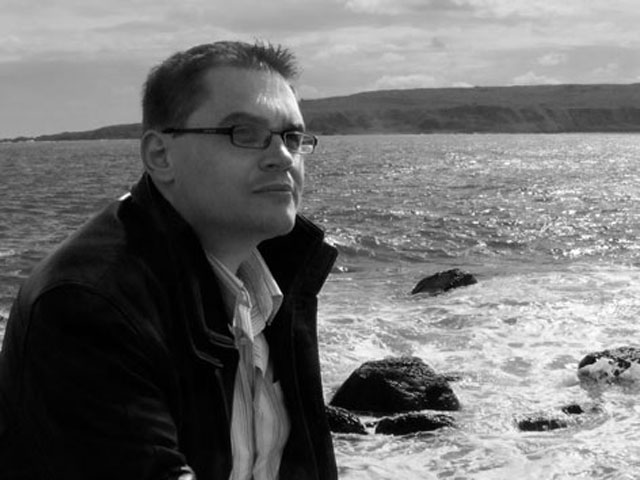
Future plans: The composer is booked until 2015...
Chris Thomas: What does the immediate future hold for you creatively?
Paul Mealor: There are some fantastic things going on with a number of choral pieces being premiered that have been commissioned by major churches and cathedrals.
I have had an enormous piece for choir and orchestra called ‘Crucifixus’ at the Edinburgh Festival, which sets the emotional impact of the crucifixion on those that were there.
There are many performances of it planned and also of the ‘Stabat Mater’.
I’ve just finished a piece for ‘Songs of Praise’ and I have a major work to write for the Britten centenary next year along with a Violin Concerto.
There’s also talk of a ‘Trombone Concerto’ for Brett Baker so there could be a couple of brass band pieces in the next few years.
In contrast, I’m also writing a number of lighter songs for pop singers, which I’m really excited about. I’m committed up to 2015 so far!
Chris Thomas: Thanks for talking to us Paul and we look forward to hearing those brass band pieces in the near future!
More information and sound samples of Paul Mealor’s music can be found on his website: www.paulmealor.com













